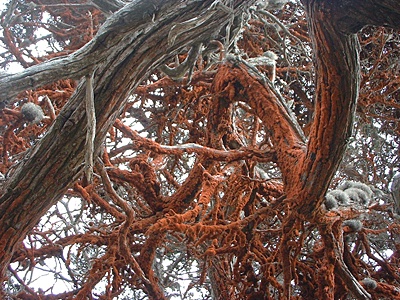All Nonfiction
- Bullying
- Books
- Academic
- Author Interviews
- Celebrity interviews
- College Articles
- College Essays
- Educator of the Year
- Heroes
- Interviews
- Memoir
- Personal Experience
- Sports
- Travel & Culture
All Opinions
- Bullying
- Current Events / Politics
- Discrimination
- Drugs / Alcohol / Smoking
- Entertainment / Celebrities
- Environment
- Love / Relationships
- Movies / Music / TV
- Pop Culture / Trends
- School / College
- Social Issues / Civics
- Spirituality / Religion
- Sports / Hobbies
All Hot Topics
- Bullying
- Community Service
- Environment
- Health
- Letters to the Editor
- Pride & Prejudice
- What Matters
- Back
Summer Guide
- Program Links
- Program Reviews
- Back
College Guide
- College Links
- College Reviews
- College Essays
- College Articles
- Back
What does it mean to be?
Do you ever wonder where your food came from? Do you occasionally glance at the ingredient list on that macaroni and cheese box, and see only unrecognizable gibberish? Then you have the potential to become a foodie. A foodie is someone who cares what they eat. Not the "calorie count", but actually what's in their food. Preferably, it contains food.
We assume that what we eat is composed of the implied ingredients: Oreotm advertises themselves as a "chocolate cookie with a cream filling", after all: but that's rarely the case. Oreos, for example, are composed of mainly partially hydrogenated oils, chemical additives, colorings, and flavorings. The dairy content? 0.
I'm a vegan. But I'm not an "Oh, the pwetty animals, I couldn't touch a precious hair on their head, that's so mean!" Vegan. I'm a vegan foodie. I want to know that I can trust what's going into my body, and how its getting to my plate in the first place. I've joined a food Co op and signed up for a produce box that comes in every week, chock full of organic goodies from the local family farms. I cook and bake the majority of my meals, research different pesticides, "natural flavorings", and "environmentally sound companies", and avoid highly (or even slightly) processed foods whenever possible. Yes, Oreos may be vegan, but they're definitely not on my list of consumables. Why do I do this? Its not for the sheer joy of hours spent researching and reading up on food, and hours spent in the kitchen after a long day at school, soccer, debate, and cello, I can tell you that.
Everyone needs to find what's important to them. Not necessarily what might be fun (though I do enjoy cooking!), but what they're committed to. What they feel is their way of making a difference in the world, offering what little they can to such a robust, busy world. And in food, I've found mine. It might seem unimportant, but how we produce food can make a difference in terms of land sustainability, species survival and habitat preservation, reducing carbon emissions, and protecting impoverished and native communities. Pesticides used in fields have been shown to make a marked difference in just the basic brain development and function of children, with severe negative impacts on their health and intelligence stemming from just living within a few miles of these fields. Its horrifying. And not just that, but who's eating these pesticide/poison packed crops? Not me, for sure.
Importing agriculture from other, poorer countries is a form of outsourcing: a way for big companies to cut costs by performing their operations in cheap, unregulated, and unprotected areas, to destroy native communities, put the lives, health, land, and industry of poor communities at risk so that these few large corporations can make a profit. The next time you're enjoying that asparagus from Chile, think about where you money is going, and who you want to be supporting with you hard earned cash. Personally, I'm going for a sustainable and environmentally friendly family farm that will invest money into the local economy and support the development of safe, healthy business practices for the consumer, producer, land, and community. Isn't worth the couple extra bucks?

Similar Articles
JOIN THE DISCUSSION
This article has 0 comments.
